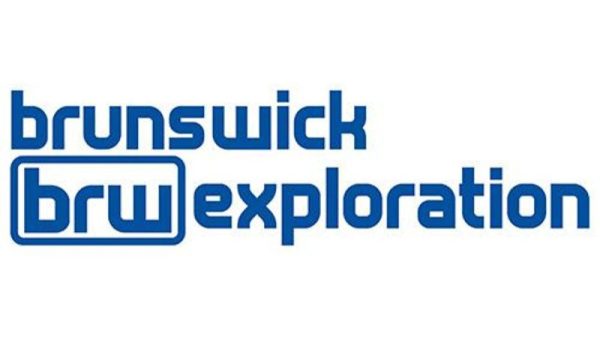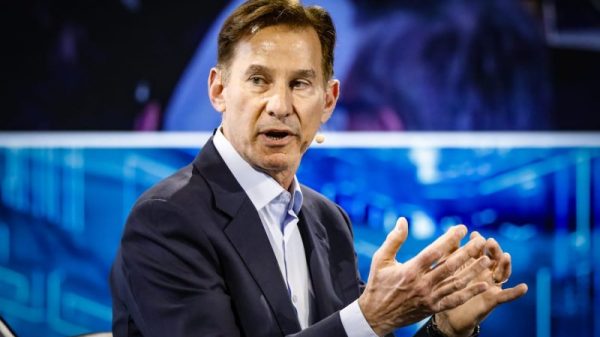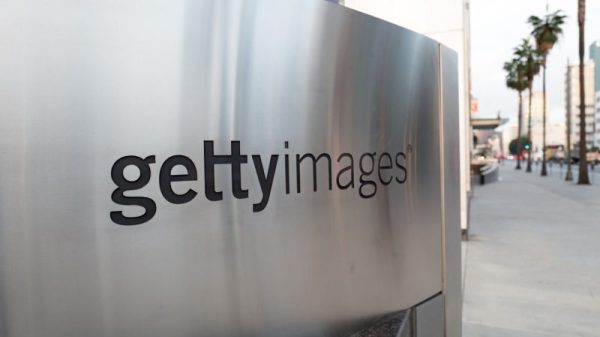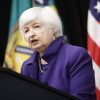All eyes were on interest rates this week as the US Federal Reserve’s two day meeting took place.
Meanwhile, Bitcoin and Ether rallied later in the week, but analysts are uncertain about the sustainability of their gains.
Elsewhere, Apple’s (NASDAQ:AAPL) iOS 18 update has already encountered problems, while Microsoft (NASDAQ:MSFT) and Intel (NASDAQ:INTC) announced major strategic moves.
1. Fed cuts rates by 50 basis points
With the Fed’s meeting in focus, investors in the US adopted a cautious stance to start the week.
Tech stocks lost ground on Monday (September 16), weighing on the Nasdaq Composite (INDEXNASDAQ:.IXIC) and Nasdaq 100 (INDEXNASDAQ:NDX), but still finished slightly ahead.
Canada’s latest consumer price index report, released on Tuesday (September 17), shows inflation cooled to the central bank’s 2 percent target in August, its lowest level since February 2021.
Wall Street indexes opened higher as the Fed meeting commenced, boosted by strong retail sales data that showed a spending increase of 0.1 percent in August. Industrial production also exceeded expectations in August, climbing 0.8 percent. The Russell 2000 Index (INDEXRUSSELL:RUT) led gains midday, advancing by 1.29 percent.
Stocks were slightly elevated on Wednesday (September 18) morning. The S&P 500 saw the most significant gains early on, while the Nasdaq Composite opened a modest 0.2 percent higher than Tuesday’s close.
The Fed’s decision to implement a 50 basis point cut sparked an immediate market rally. The Nasdaq Composite surged 0.98 percent, the S&P 500 jumped 0.78 percent and the Nasdaq 100 (INDEXNASDAQ:NDX) climbed 0.82 percent. The Russell 2000 and NYSE Composite (INDEXNYSEGIS:NYA), already trending higher, saw further gains.
However, the market pulled back in late afternoon trading as Fed Chair Jerome Powell cautioned that future cuts will hinge on positive economic data. Indexes ultimately closed lower on Wednesday.
While equities historically have not performed well in September, with the S&P 500 averaging a 1.2 percent loss for the month since 1928, Thursday’s (September 19) performance defied expectations. The index spent the day on the rise, closing at its 39th record of the year. The S&P/TSX Composite Index (INDEXTSI:OSPTX) also closed at a new high.
On Friday (September 20), indexes opened slightly lower in both Canada and the US. Market watchers pointed to the potential impact of “triple witching,” which could increase trading volume and volatility, as well as the fact that the Fed’s rate cut was already priced in. By midday, equities were trading lower, prompting some analysts, like Allen Smal of iA Private Wealth, to characterize the day as a “breather” rather than a sign of significant concern.
2. Bitcoin prices rises above US$64,000
The price of Bitcoin ultimately trended up this week despite some volatility.
The cryptocurrency traded between US$59,770 and US$60,220 over the weekend, but started falling around noon on Sunday (September 15). As of 11:10 a.m. EDT on Monday, it was at US$57,673, down 4.2 percent in 24 hours.
Bitcoin and Ether saw modest gains of 3.5 percent and 2.96 percent, respectively, as the Fed meeting kicked off on Tuesday. Bitcoin was priced above US$61,000 briefly just before midday, while Ether saw gains of nearly 3 percent, allowing it to rise above US$2,300 for the first time since September 10.
After the Fed’s rate cut, Bitcoin trended upward, eventually rising above US$62,000 for the first time since August 27. Ether also rallied, pulling above US$2,400 for the first time all week. Unlike previous spikes seen in recent weeks, both cryptocurrencies have managed to hang onto their gains and continue to climb.
However, the historical correlation between Bitcoin and the S&P 500 suggests a potential Bitcoin price drop following the Fed’s rate cut. This correlation has been particularly strong during times of economic stress or uncertainty.
As Cointelegraph notes, ‘Considering that a Bitcoin correction might follow the cut in interest rates, the immediate target range is $54,000, where a Chicago Mercantile Exchange futures gap was formed at the beginning of September.’
Bitcoin’s recent price action further supports the possibility of a correction. It broke above US$61,000 ahead of the market open, accompanied by a surge in trading volume on Binance, which often signals a market top. Binance saw US$85 million in spot volume in one hour, the highest in over three months, although the peak wasn’t sustained.
The crypto market showed strong signs on Thursday, with Bitcoin rising 5.1 percent to US$63,550, its first break above US$63,00 since August 26. Ether also saw substantial gains, climbing 6 percent to US$2,471.97 at 3:00 pm PST.
While some analysts have expressed caution about the sustainability of this rally, others see echoes of Bitcoin’s past breakouts fueling predictions of new record highs by year end.
Meanwhile, Ether’s technical indicators suggest a more robust price foundation, as it holds above its 200 day simple moving average, avoiding the dreaded “death cross” pattern that Bitcoin saw in August.
Bitcoin briefly touched US$64,000 for the first time this month overnight, potentially buoyed by the Bank of Japan’s decision to maintain interest rates at the current level.
A report from Steno Research predicts increased on-chain activity following the Fed’s rate cut, similar to patterns observed in the last bull market. This development could particularly benefit Ethereum, potentially ending its recent streak of underperformance. The report also highlights the correlation between gold and Bitcoin’s recent rallies, along with increased global liquidity due to central bank easing policies.
3. Microsoft shares a raft of AI news
Microsoft made strides this week, reporting a dividend increase, a major share buyback program and new partnerships focused on artificial intelligence (AI) infrastructure and responsible AI development.
Microsoft’s board declared a quarterly dividend of US$0.83 per share on Monday, a 10 percent increase over the last quarter. The dividend will be payable on December 12, 2024.
The board also approved a new share buyback program of up to US$60 billion, the third largest in 2024 after Apple’s US$100 billion buyback and Alphabet’s (NASDAQ:GOOGL) US$70 billion buyback.
On Tuesday, the company entered into a partnership with BlackRock (NYSE:BLK), Global Infrastructure Partners and MGX, an investment vehicle out of the United Arab Emirates. The initiative, called the Global AI Infrastructure Investment Partnership (GAIIP), will support data center construction to meet growing demand for computing power.
“These infrastructure investments will be chiefly in the United States fueling AI innovation and economic growth, and the remainder will be invested in U.S. partner countries,” the companies said in a joint statement.
NVIDIA (NASDAQ:NVDA) will support the initiative by providing expertise in AI data center development
GAIIP plans to attract additional investors, with an initial target of US$30 billion in private equity capital, potentially leveraging this into a total investment pool of up to US$100 billion.
Also on Tuesday, Microsoft extended its partnership with G42, a technology holding group based in the United Arab Emirates, by announcing plans to establish two new data centers in the country with the support of the Artificial Intelligence and Advanced Technology Council.
The data centers will focus on establishing “tesponsible AI,” with the first working on developing best practices and standards for ethical AI use in the Middle East and Global South. The second will be an expansion of Microsoft’s AI for Good Research Lab, supporting AI projects targeting important social challenges.
The move follows Microsoft’s US$1.5 billion investment in G42 in April to accelerate AI development in the United Arab Emirates. The company’s collaboration with G42, which is part of Sheikh Tahnoon bin Zayed Al Nahyan’s US$1.5 trillion empire, aims to establish G42 as a major AI player in the Middle East.
Microsoft ended the week with the announcement that it will buy power from the Three Mile Island nuclear power plant as part of a 20 year agreement that will fuel its data centers with carbon-free nuclear energy.
The Pennsylvania plant, located on an island in the Susquehanna River just outside Harrisburg, is owned by Constellation Energy (NASDAQ:CEG), a subsidiary of Exelon (NASDAQ:EXC), which shut down the plant in 2019 after it failed to become profitable and lawmakers refused to provide financial relief. In 1979, the plant was the site of one of the most dangerous nuclear power accidents in the US after a combination of equipment malfunctions and operator error led to a partial meltdown of the Unit 2 reactor, releasing radioactive gas and iodine into the environment.
“To prepare for the restart, significant investments will be made to restore the plant, including the turbine, generator, main power transformer and cooling and control systems,” Constellation Energy said in a press release.
The company will also need approval from the US Nuclear Regulatory Commission and various state and local agencies. Constellation plans to pursue a license renewal to extend operations until 2054.
The grid is expected to be operational by 2028.
4. Intel CEO outlines new strategy
Intel reported positive news on Monday, with CEO Pat Gelsinger issuing a statement just after the market closed to outline the “next phase of Intel’s transformation” following a board meeting last week.
The company said its chip-making division, Intel Foundry, will supply Amazon Web Services with two custom-made chips: AI fabric chips that use Intel’s advanced manufacturing technology, 18A, and a custom Xeon 6 chip using older technology, Intel 3. The companies will co-invest in custom chip designs in the future.
Intel also announced plans to establish Intel Foundry as an independent subsidiary, which will allow it to source external funding sources. The company has reportedly spent US$25 billion on Intel Foundry each year for the last two years. A source for CNBC shared that Intel is considering spinning the business off into a separate traded company.
In a separate press release, Intel confirmed it is eligible to receive up to US$3 billion in government funding under the CHIPS and Science Act for the Secure Enclave program to manufacture AI chips for the US military.
“Intel is proud of our ongoing collaboration with the U.S. Department of Defense to help strengthen America’s defense and national security systems,” said Chris George, president and general manager of Intel Federal.
Intel’s share price rose 2.37 percent to close at US$20.91 on Monday. It rose in after-hours trading and opened on Tuesday morning at US$21.73, 3.9 percent higher than Monday’s close.
Intel shares spiked by 11.71 percent in late afternoon trading on Friday after the Wall Street Journal reported insider knowledge of a recent takeover deal offered to Intel by Qualcomm (NASDAQ:QCOM). The surge was short-lived, and Intel ended the week near Thursday’s closing price, US$21.15.
Over the past five days, Intel’s shares have shown a positive trend, increasing by 9.04 percent. However, the stock is down 54.31 percent year-to-date, highlighting a challenging period for the company.
5. Apple’s iOS 18 launch encounters problems
Apple released iOS 18 on Monday ahead of the iPhone 16 launch. The update introduced enhanced customization options for the Home Screen and Control Center, alongside improvements to the Mail and Messages apps.
The Photos app got the biggest overhaul, with more Collections tabs for easier photo discovery, enhanced by on-device intelligence for library organization, a customizable layout and a new unified design for a scrollable view.
As early as Tuesday, complaints about the upgrade emerged, including battery drain and device overheating.
Additionally, users with M4-equipped iPad Pros reported that the upgrade “bricked” their devices, rendering them unresponsive to attempts to restart. M4 is a type of chip used by the company.
One Reddit (NYSE:RDDT) user posted that their device had been bricked after they attempted to update the operating system from iOS 17 to iOS 18. Multiple Reddit users replied, saying they had similar issues after updating to iOS 18.
In response, Apple provided a statement to MacRumors. ‘We have temporarily removed the iPadOS 18 update for M4 iPad Pro models as we work to resolve an issue that is impacting a small number of devices,’ the company said.
The market’s reaction to these issues was minimal, and Apple’s share price is up 5.37 percent for the week.
Securities Disclosure: I, Meagen Seatter, hold no direct investment interest in any company mentioned in this article.







































